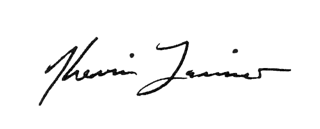Mysterious and Wild and Wide-Open
Each year we honor and learn from debut authors in four annual features—our debut poets roundup, First Fiction, the New Nonfiction, and 5 Over 50—all designed to tell the unique stories of notable first books: the inspiration behind them, the process of writing them, the various paths that led to their publication. I don’t mind saying that 5 Over 50, in which we feature debut authors fifty or older who have recently published or will soon publish their first books, no matter the genre, is among my favorites, and not only because I recently “celebrated” a birthday that would qualify me for such a group and have a hand in selecting the authors—along with features editor India Lena González, who recently published her own debut poetry collection, fox woman get out!, a milestone she achieved, I might add, a bit earlier than those in my age group. Which underscores one of the points we’re trying to make with our debut features: every writer on their own path, at their own pace, in their own time. One of the debut authors featured in this issue, Alma García, whose novel, All That Rises, was published in October, shares some wisdom she learned on the path to her own milestone: “When you come to the end of something...whether or not it’s how you hoped it might end, no matter your age when you arrive, you know what you have? A beginning—one that’s as mysterious and wild and wide-open as you want it to be.”
The end as beginning is something Christopher Soto contemplated on a recent trip to Joshua Tree, a journey he describes in “Making Space: A Farewell Ritual for the Debut Book”. After meditating on all of his experiences, good and bad, following the 2022 publication of his debut poetry collection, Diaries of a Terrorist, Soto releases himself from the pressures of that first book and makes way for his second: “When I said goodbye to my debut poetry book, I created space for new dreams to come in.”
The author on our cover knows about creating space for new dreams. In her stunning new memoir, How to Say Babylon, published in October, Safiya Sinclair writes about growing up in a Rastafarian family in Jamaica, breaking free of her father’s oppressive control, and finding her own voice as a woman and poet, or, as she writes, “the bard dreaming up my own salvation.” And this emphasizes another point running through these pages: Writing is life. Whether you’re focused on fiction or nonfiction, poetry or essays, you are engaging in the real stuff of life in your writing—dreams and all.








